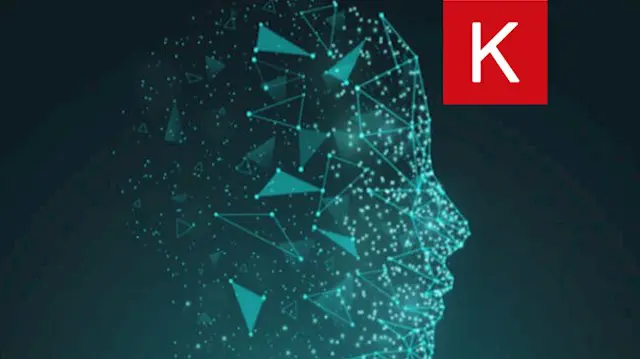
Deep Learning with Keras
Self-paced videos, Lifetime access, Study material, Certification prep, Technical support, Course Completion Certificate
Uplatz
Summary
- Certificate of completion - Free
- Reed courses certificate of completion - Free
Add to basket or enquire
Overview
Uplatz offers this comprehensive course on Deep Learning with Keras. It is a self-paced course with video lectures. You will be awarded Course Completion Certificate at the end of the course.
Deep Learning essentially means training an Artificial Neural Network (ANN) with a huge amount of data. In deep learning, the network learns by itself and thus requires humongous data for learning.
Keras is a powerful and free open-source Python library that is particularly attractive. Keras can be used with Theano and TensorFlow to build almost any sort of deep learning model.
Advantages of Deep Learning
- Robustness to natural variations in the data is automatically learned.
- The same neural network based approach can be applied to many different applications and data types.
- Features are automatically deduced and optimally tuned for desired outcome. Features are not required to be extracted ahead of time. This avoids time consuming machine learning techniques.
Keras has the following key features
- It allows the same code to run on CPU or on GPU, seamlessly.
- It has a user-friendly API which makes it easy to quickly prototype deep learning models.
- It has built-in support for convolutional networks (for computer vision), recurrent networks (for sequence processing), and any combination of both.
- It supports arbitrary network architectures: multi-input or multi-output models, layer sharing, model sharing, etc. This means that Keras is appropriate for building any deep learning model, from a memory network to a neural Turing machine.
ADVANTAGES OF KERAS
Simplicity – Keras is very easy and simple. It is a user-friendly API with easy to learn and code feature. It is very simple to start with Deep Learning using Keras.
Backend Support - It runs off the top of TensorFlow, Theano, and Microsoft CNTK. These are some libraries that Keras use for backend support.
Great community and Caliber Documentation - Keras has a large supportive community. It provides code on an open-platform. This community allows the researchers to publish their code and experimentation details for the public. This community never fails to respond to the queries of its users.
In this Deep Learning with Keras course by Uplatz is a complete and end-to-end course covering all topics of Deep Learning with Keras in detail.
Certificates
Certificate of completion
Digital certificate - Included
Course Completion Certificate by Uplatz
Reed courses certificate of completion
Digital certificate - Included
Will be downloadable when all lectures have been completed
Curriculum
Course media
Description
Deep Learning with Keras - Course Syllabus
1) What is deep learning?
2) What is ANN?
3) Introduction to Keras
· Overview of Keras
· Features of Keras
· Benefits of Keras
4) Keras Installation
Keras - Models, Layers and Modules
1) Keras Models
· Sequential Model
· Functional API
2) Keras Layers
· Core Layers
· Convolution Layers
· Pooling Layers
· Recurrent Layers
3) Modules
Keras - Model Compilation, Evaluation and Prediction
1) Loss
2) Optimizer
3) Metrics
4) Compile the model
5) Model Training
6) Model Evaluation
7) Model Prediction
Life-Cycle for Neural Network Models in Keras
1) Define Network
2) Compile Network
3) Fit Network
4) Evaluate Network
5) Make Predictions
Developing a Deep Learning model with Keras
Building our first neural network in keras
Who is this course for?
- Wants to learn machine learning (this course is a soft introduction)
- Knows machine learning and wants to learn deep learning (this course focuses on deep learning)
- Knows deep learning but needs help applying their knowledge in practice (this is a very applied course)
Requirements
Passion and determination to achieve your goals!
Career path
- Software Engineer
- Research Analyst
- Data Analyst
- Bio information
- Software developer
Questions and answers
Currently there are no Q&As for this course. Be the first to ask a question.
Reviews
Currently there are no reviews for this course. Be the first to leave a review.
Legal information
This course is advertised on reed.co.uk by the Course Provider, whose terms and conditions apply. Purchases are made directly from the Course Provider, and as such, content and materials are supplied by the Course Provider directly. Reed is acting as agent and not reseller in relation to this course. Reed's only responsibility is to facilitate your payment for the course. It is your responsibility to review and agree to the Course Provider's terms and conditions and satisfy yourself as to the suitability of the course you intend to purchase. Reed will not have any responsibility for the content of the course and/or associated materials.


